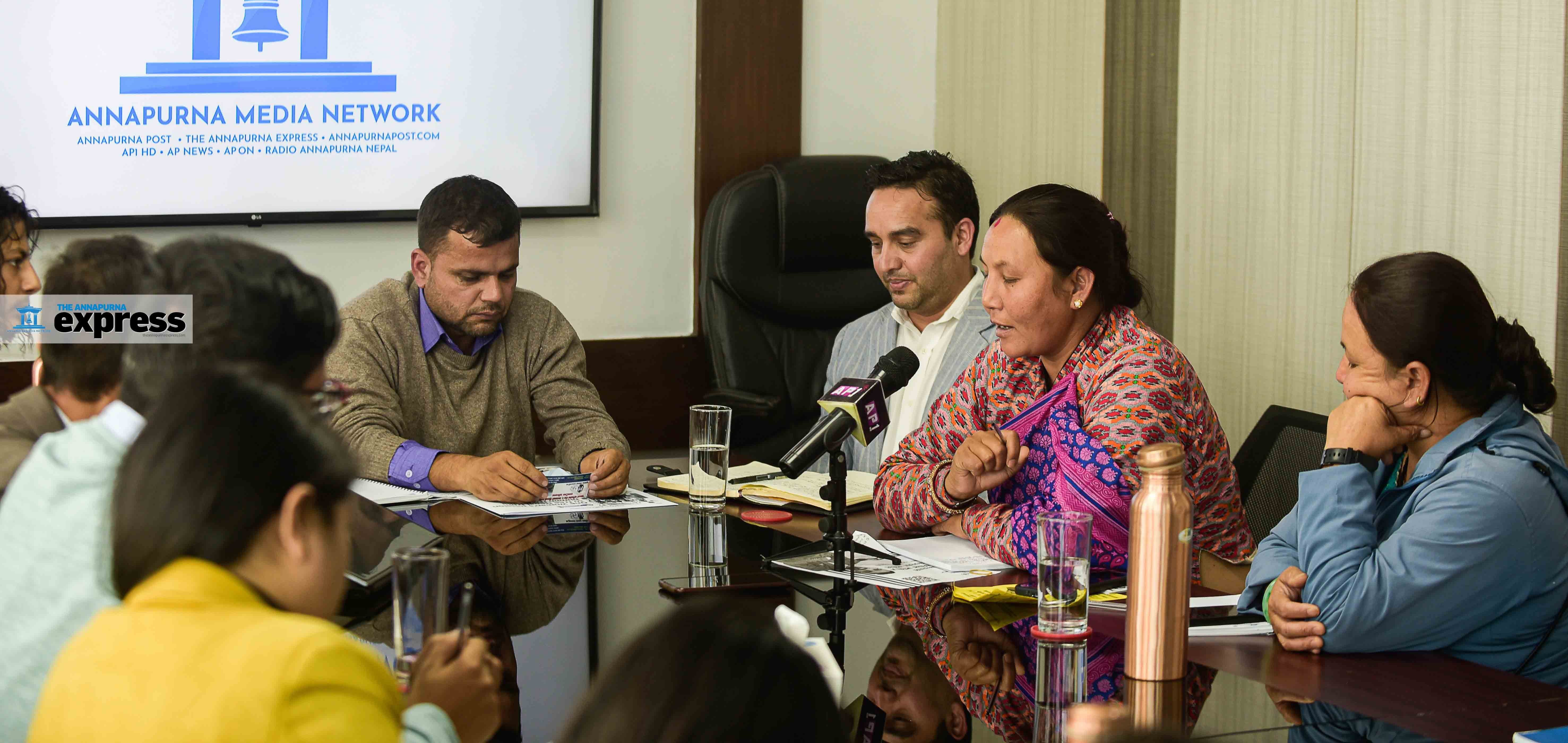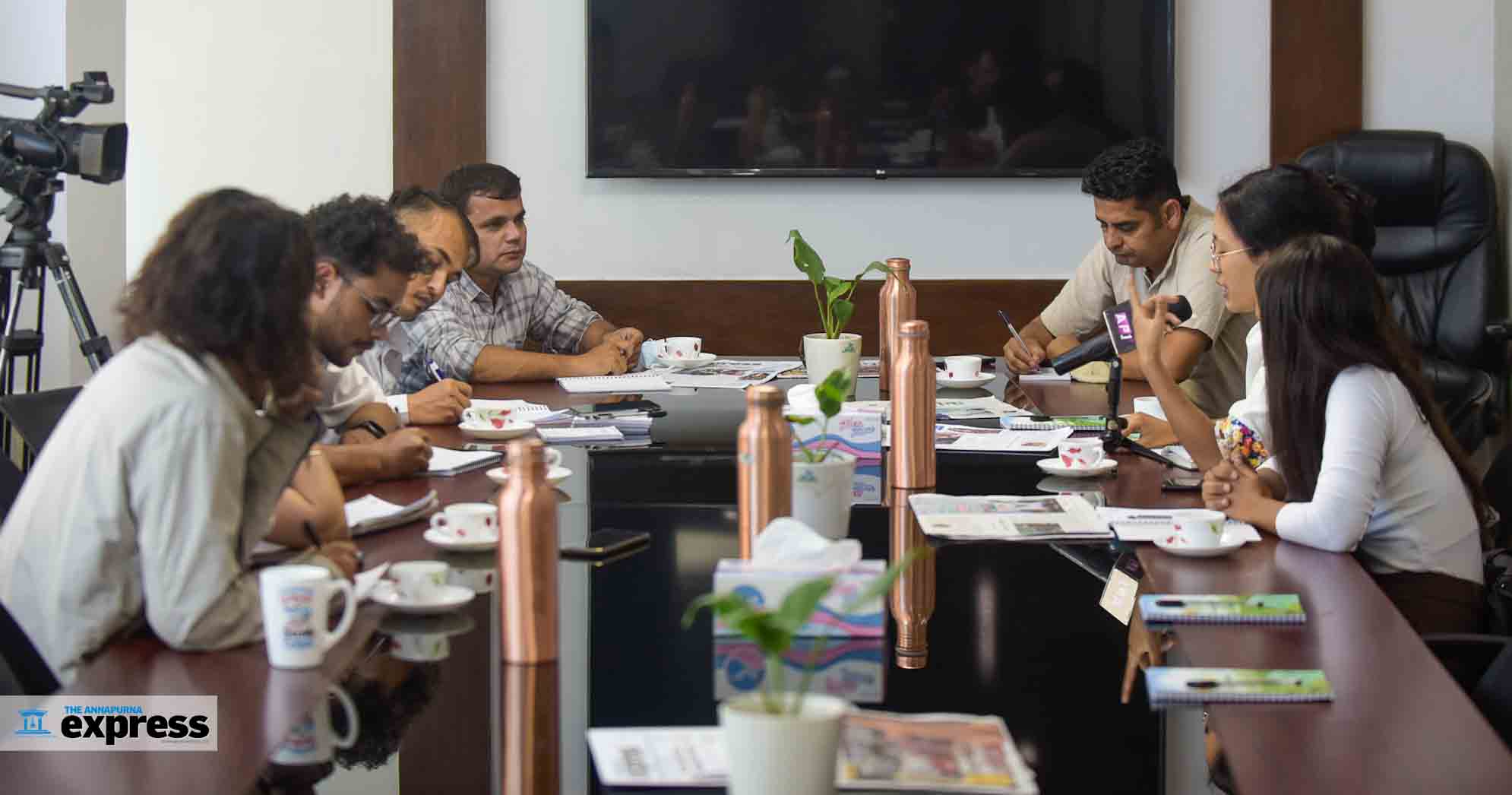India-Nepal annual border coordination meeting concludes in Kathmandu
The sixth annual coordination meeting between the border guarding forces of India and Nepal concluded in Kathmandu on Thursday. The meeting was held between Director General, Sashastra Seema Bal (SSB) and Inspector General Nepal Armed Police Force (APF) from September 27 to 29. The meeting started at APF Headquarters in Halchowk and ended after the two sides signed an agreement for border cooperation. The Indian delegation was led by S L Thaosen, Director-General of SSB and from the Nepal side, Raju Aryal, Inspector General of APF was leading the delegation. Pankaj Darad (IPS) IG P.K Gupta, IG and S.Subramaniam DIG were part of the delegation from SSB. During the meeting both the delegations deliberated on streamlining the mechanism to curb trans-border crimes, timely exchange of information and enhance security across the Indo-Nepal border. Heads of both forces agreed to develop the mechanism to prevent illegal border crossing of third nation citizens through the border. It was also decided that border forces will continue to reform methods used in view of present-day challenges. They mutually agreed to prevent the misuse of their respective territories by anti-nationals. The Sashastra Seema Bal delegation also called on Bal Krishna Khand, Home Minister of Nepal at his Office in Kathmandu and reiterated the commitment of SSB to work for strengthening the friendship and cooperation between the two border forces of India and Nepal. The security issues were also discussed for upcoming federal and provincial elections in Nepal. The Director General, SSB and Inspector General, APF have been holding Coordination meetings every year since 2012, alternatively in India and Nepal. The 5th Annual Coordination meeting between SSB DG and APF IG was held in October last year. Both sides had agreed to take further measures for enhancing coordination and cooperation between their border guarding forces. The decision was taken in the fifth annual coordination meeting between Director General Sashastra Seema Bal (SSB) and Inspector General, Armed Police Force (APF), Nepal. The 5th Annual Coordination meeting began last year, on October 4 here in the national capital. The Indian delegation was then led by DG BSF Kumar Rajesh Chandra and included Officers from SSB, Ministry of Home Affairs and Ministry of External Affairs. The Nepal delegation was led by Shailendra Khanal, IG APF and included Officers from APF, Home and Foreign Ministries of Nepal. (ANI)
ApEx Roundtable: Where do Nepali youths stand on climate issues?
The government has been working to finalize the agendas for the COP27 climate conference, which will take place in Sharm el-Sheikh, Egypt, on 6-18 Nov. It has been holding consultations with wide-range of stakeholders. In this context, ApEx organized a roundtable session with youth climate activists to solicit their views. Here is an excerpt of what they had to say:
Same set of people participate in climate conference
Saurav Dhakal, Co-founder, Story Cycle
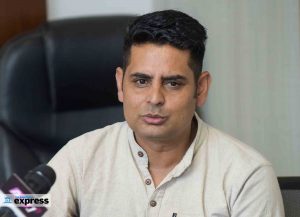
The issue of climate change should be analyzed at four levels: individual, community, national, and international. The individual approach is all about behavioral change and sustainable practice. At the community level, local governments are supposed to intervene. The national level means the government’s responsibilities and the international level is about multinational programs and discussions. But our approach at all these levels is minimal. Our government has no clear focus. For example, our prime minister has committed to achieving net zero emissions by 2040 and at the same time, the government is planning to extend the petroleum pipeline. These two plans clash with each other.
At the international level too, our presence is unnoticeable, and we have barely benefited from international facilities. To make our voice heard at COP climate summit and other international forums, our homework should be strong and for that, our institutions must be strong. We also need climate negotiation but our issues and agendas should be bold and research-based. Bhutan has been doing well in this regard. It is impossible to have a diverse discussion so long as the same set of people represent Nepal at the climate conference. Civil society members, youths, researchers, and climate activists should also get the opportunity to attend the event. There is also a lack of coordination at the ministry level. The government programs on climate are often Kathmandu based and they never include wide stakeholders. We only get to learn about the government agendas on climate via social media. This has to change.
Indigenous people should join international dialogue
Mega Maskey, Network Coordinator, Harin Nepal

The world has a 1.8bn youth population. Almost 40 percent of Nepal's population is youth. So, we have a great power, which we must utilize to implement climate action. And in many terms, we have already carried our responsibility. Global strikes for climate, for instance, are mainly mobilized and led by the youths. We have held the world governments accountable. But despite all the contributions, youths are barely given a chance in governmental and international climate forums. Our participation is minimal and sometimes, we are invited just to fulfill the youth quota. There is youth participation in COP climate summits, but as an audience, not as negotiators.
When it comes to negotiations and delegations, it's always the same old politicians and bureaucrats. Essentially, youths have no meaningful participation. In COP26, only 13 of the 75 Nepali participants were female. There should be more inclusive participation. Those who have felt and lived with climate change impacts, such as indigenous people, should join the international discussions. I believe they could better express the situation. Their participation will also be a sort of symbolic protest against developed nations and major contributors to carbon emissions.
People working at the grassroots level are always ignored
Sagar Koirala, Youth Ambassador, Youth for Nature
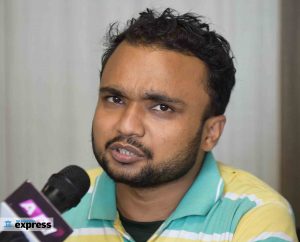
Nepal is one of the most vulnerable countries in terms of climate change. While many Nepali youths have started working for climate advocacy, mainly on climate finance and loss and damage, they still lack support from the government. The government and other concerned authorities should team up with the youths to combat the climate crisis. Nepal’s share in global carbon emissions is only 0.1 percent, yet we are facing heavy brunt of climate change. We should focus on climate- and environment-friendly policies, but the government has been doing the opposite.
It is conducting petroleum extraction feasibility in Dailekh and Palpa districts and introducing counterproductive policies such as tax hike in electric vehicles. There are many people who work at the grassroots level to fight against climate change, but they are not getting any support or recognition. They have more knowledge on climate adaptation, but they are rarely consulted or invited for national or international climate discussions. At least, COP climate conference should be inclusive if we were to bring up the real agendas.
Transfer of knowledge is missing
Monica Neupane, President, Climate Nepal
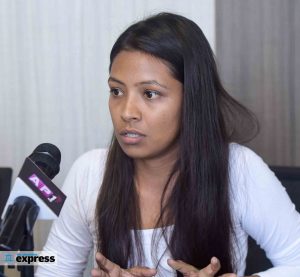
This year, for the first time, I am going to participate in the COP27 climate summit, but I am yet to know how things will go there. I have no idea about the process of negotiations and any other things that a participant needs to know. I have been trying to figure these things out without any success. I believe this is due to the ignorance of our governmental bodies. They should have trained us, so that we could raise our voice too. The participants of previous years have not been able to pass on their experience and knowledge to the youths. I have been working for climate education with schools. A student in Sindhupalchok drowned in a river recently while going to school.
The water levels in the river have gone up, which can be attributed to climate change. But the local people are not aware of this. They are facing the impacts of climate change on a daily basis. If we could only educate them, it will help them prepare for further crises. This is particularly true for the younger generation. Here too, there is a gap in knowledge. It is not being passed down. The government needs to update the school curriculum. In terms of climate change, there are a lot of things to add.
What happens in COP27

- COP27 will be a moment for countries to fulfill their pledges and commitments toward delivering the objectives of the Paris Agreement to enhance the implementation of the convention.
- This year should witness the implementation of the Glasgow pact call to review ambition in NDCs, and create a work program for ambition on mitigation.
- This summit should witness enhanced global agendas for action on adaptation, confirming what was agreed on in Paris and further elaborate the Glasgow pact with regard to placing adaptation at the forefront of global action.
- The summit will follow the progress on delivery of the annual $100bn to build more trust between developed and developing countries, showing that actual commitments are being fulfilled.
- Enhancing and facilitating agreement in the negotiations is of the utmost importance for the Presidency of COP27 to achieve tangible results in a balanced manner.
Ashesh Dangol’s ‘All Those Beautiful Dreams’ music album released
Ashesh Dangol, also known by his stage name Himalayan Hendrix released his music album ‘All Those Beautiful Dreams’ on Sept 3. All the eight songs in the album are written, composed, mixed/mastered and produced by Dangol. The album consists of 8 tracks: Greed, My Blues Ain’t For Sale, Human VS Machine, Posers The Losers, All Those Beautiful Dreams, Unfulfilled Dreams, I let It Go, and For The New Revolution.
AMN organizes Climate Journalism Training
Annapurna Media Network, in association with USAID and National Democratic Institute (NDI), conducted a Climate Journalism Training Program on September 3-4. The training was dedicated to enhancing the skills of the journalists across Nepal to cover a much needed and vigorous reporting on climate change and its overall effect on the ecosystem. The program, on the first day, was divided into three folds. Firstly, Arjun Dhakal, a climate change and policy expert, gave the trainees a brief idea on the policies in and out of Nepal that govern the issues related to climate change. He talked about the outcomes of those policies, as well as the challenges faced, specifically in Nepal, due to lack of a proper policy that properly mitigates the problems caused by the changing climate. Biraj Singh Thapa, environment and technology expert, gave a detailed explanation with datasets, showing the increasing effect of climate change all across the world, especially South Asia. He presented the concept of hydrogen as a source of fuel. “It is expensive to completely shift towards a hydrogen based fuel system, especially in the context of Nepal,” he said, “Nevertheless, it is a long-term investment as well as environment-friendly.” The training ended with the presentation of Sujata Karki, climate communication expert. She presented the fellow journalists with proper ways to properly communicate while reporting on a story involving climate and ecosystem. The second day was more of a practical session. The training started with a presentation from Siromani Dawadi, station manager at Radio Annapurna Nepal. His presentation was followed by a practical work where trainees worked in teams to form a sample report for radio broadcast. Tikaram Yatri, Editor-In-Chief of AP1 HD television, had a Q&A session with participants related to interview skills. The program came to an end with the presentation of Akhanda Bhandari, editor of the Annapurna Post, where he discussed the dos and don’ts in journalistic writing.

